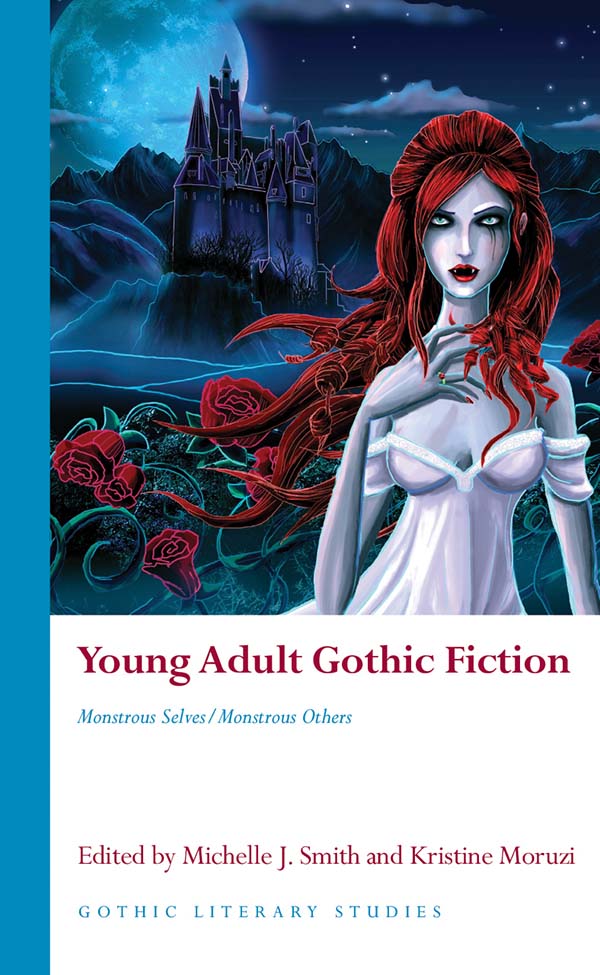Young Adult Gothic Fiction
Monstrous Selves/Monstrous Others
Editor(s) Michelle J. Smith,Kristine Moruzi
Language: English
Genre(s): Literary Criticism
Series: Gothic Literary Studies
- June 2021 · 320 pages ·216x138mm
- · Hardback - 9781786837509
- · eBook - pdf - 9781786837516
- · eBook - epub - 9781786837523
This collection is the first to focus exclusively on twenty-first-century young adult Gothic fiction. The essays demonstrate how the contemporary resurgence of the Gothic signals anxieties about (and hopes for) young people in the twenty-first century. Changing conceptions of young adults as liminal figures, operating between the modes of child and adult, can be mobilised when combined with Gothic spaces and concepts in texts for young people. In young adult Gothic literature, the crossing of boundaries typical of the Gothic is often motivated by a heterosexual romance plot, in which the human or monstrous female protagonist desires a boy who is not her ‘type’. Additionally, as the Gothic works to define what it means to be human – particularly in relation to gender, race, and identity – the volume also examines how contemporary shifts and flashpoints in identity politics are being negotiated under the metaphoric cloak of monstrosity.
Acknowledgements
Note on Contributors
1. Introduction: Kristine Moruzi and Michelle J. Smith
Section 1: Genre Trouble: Gothic Hybrids
2. Zombies Vs Unicorns: An Exploration of the Pleasures of the Gothic for Young Adults - Patricia Kennon
3. Genre Mutation and the Dialectic of YA Gothic Dystopia in Holly Black’s The Coldest Girl in Coldtown - Bill Hughes
Section 2: Rewriting the Historical Gothic
4. ‘Vanguard taste and fashion spirit’: Feminist Responses to Twenty-First Century, Western Zeitgeist in Vampire Romeo and Juliet texts - Sarah Olive
5. The Pre-Monstrous Mad Scientist and the Post-Nerd Smart Girl in Kenneth Oppel’s Frankenstein Series - Sean P. Connors and Lissette Lopez Szwydky
6. Rock Star Rochester and Heartthrob Heathcliff: The Problematic Redemption of the Byronic Hero in Recent Young Adult Retellings of Brontë Novels - Sara K. Day
Section 3: Gothic Places
7. Monstrous Islands: Spatiality and the Abjection of Motherhood in Gothic Young Adult Fiction - Cecilia Rogers
8. Adolescence Adrift: The Lost Child in Contemporary Australian Gothic YA Fiction - Adam Kealley
Section 4: The Human and the Non-Human
9. Accepting Monsters: The Visual Gothic in I Kill Giants and A Monster Calls - Debra Dudek
10. Unhuman Entanglement: Onto-Ethics and the Fiction of Frances Hardinge - Chloé Germaine Buckley
11. Black and White and Read All Over: Miss Peregrine’s Peculiar Children, Gothic Imagery and Posthuman Publishing - Jen Harrison
Section 5: Gothic Femininities
12. Testimony from Beyond the Grave: Comparing Girls’ Narratives of Sexual Violence and Death in Gothic Fiction - Lenise Prater
13. Young Adult Gothic Fairy Tales and Terrifying Romance - Michelle J. Smith and Kristine Moruzi
Author(s): Michelle J. Smith
Michelle J. Smith is Senior Lecturer in the School of Languages, Literatures, Cultures and Linguistics at Monash University, Melbourne, Australia.Author(s): Kristine Moruzi
Kristine Moruzi is Senior Lecturer in the School of Communication and Creative Arts at Deakin University, Melbourne, Australia.

